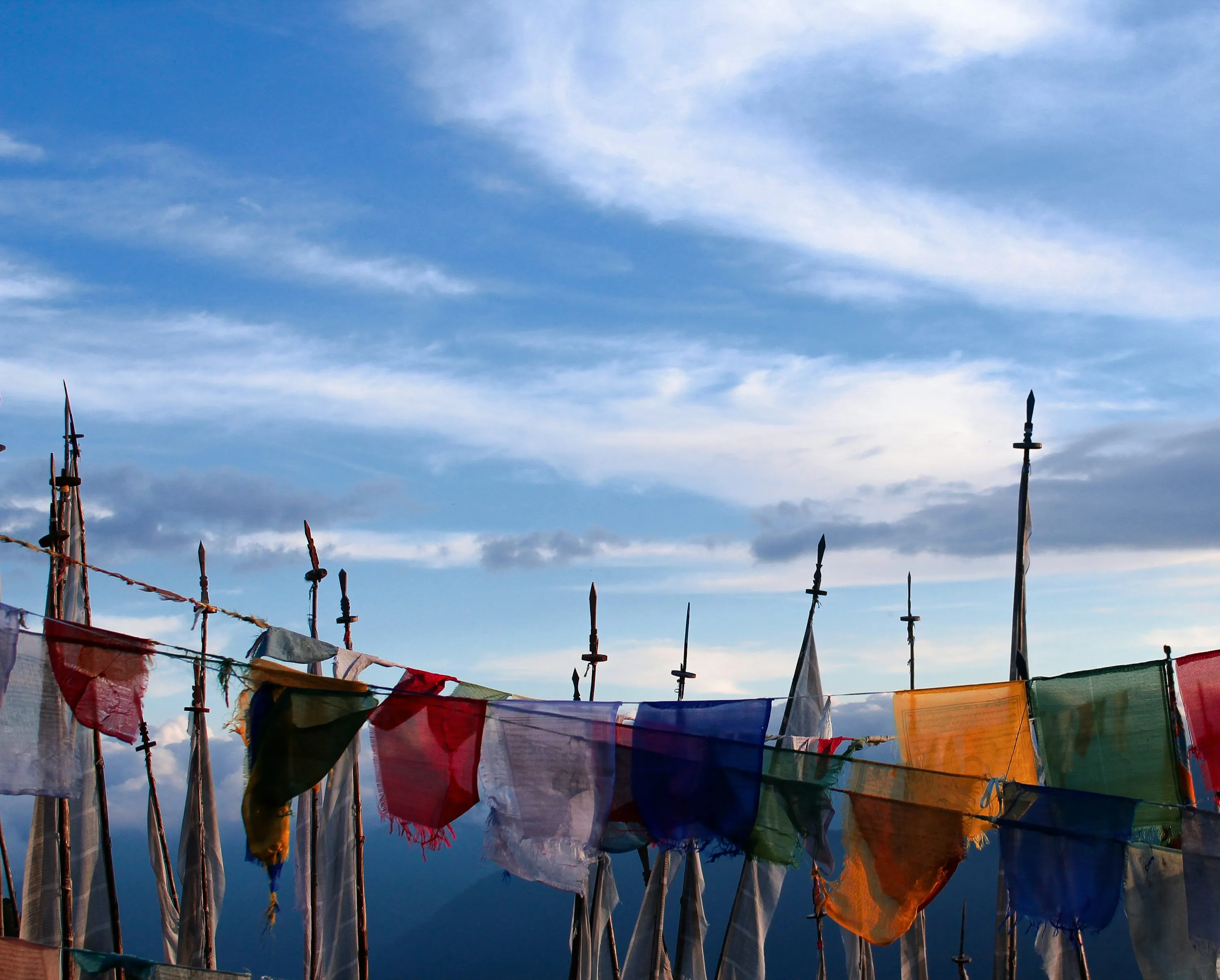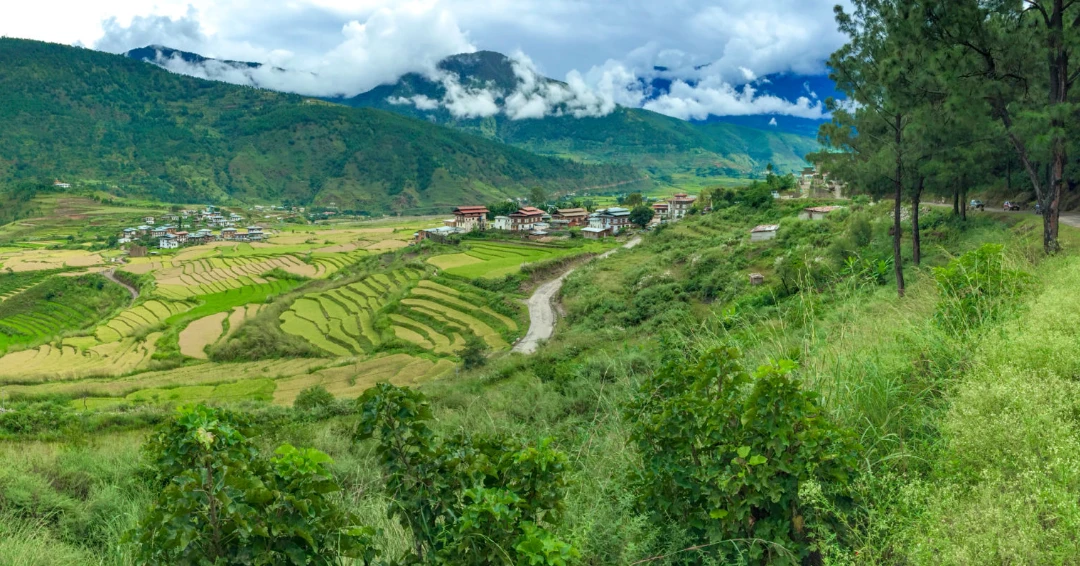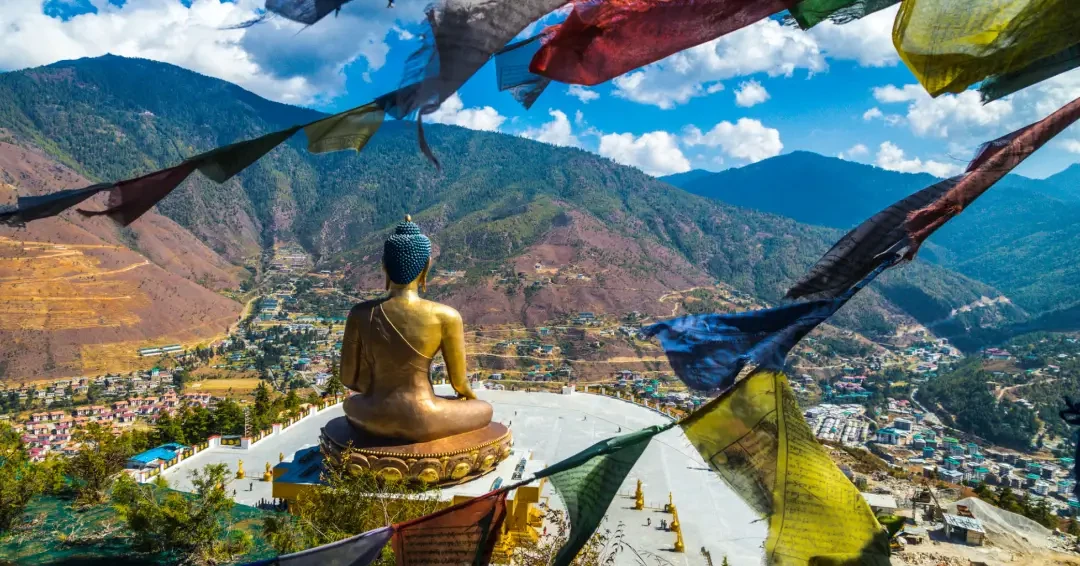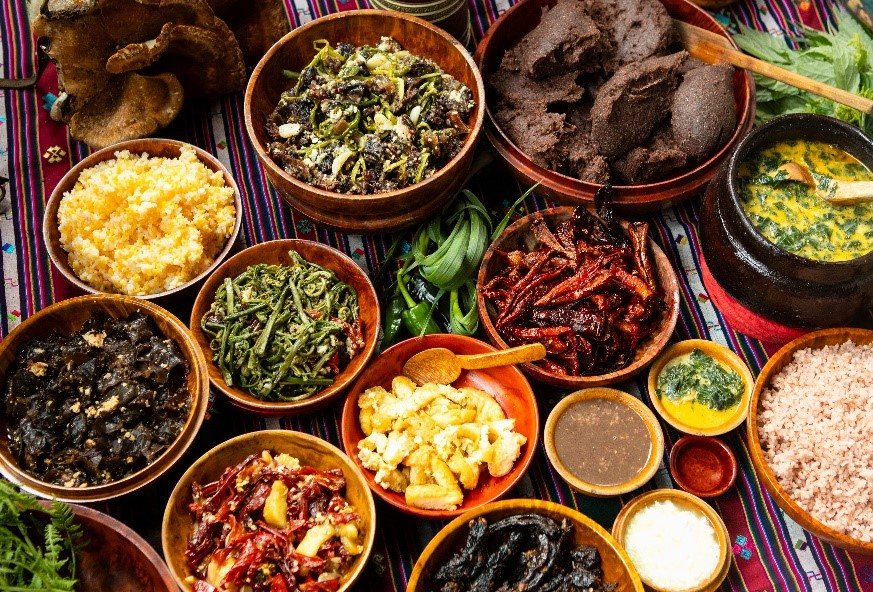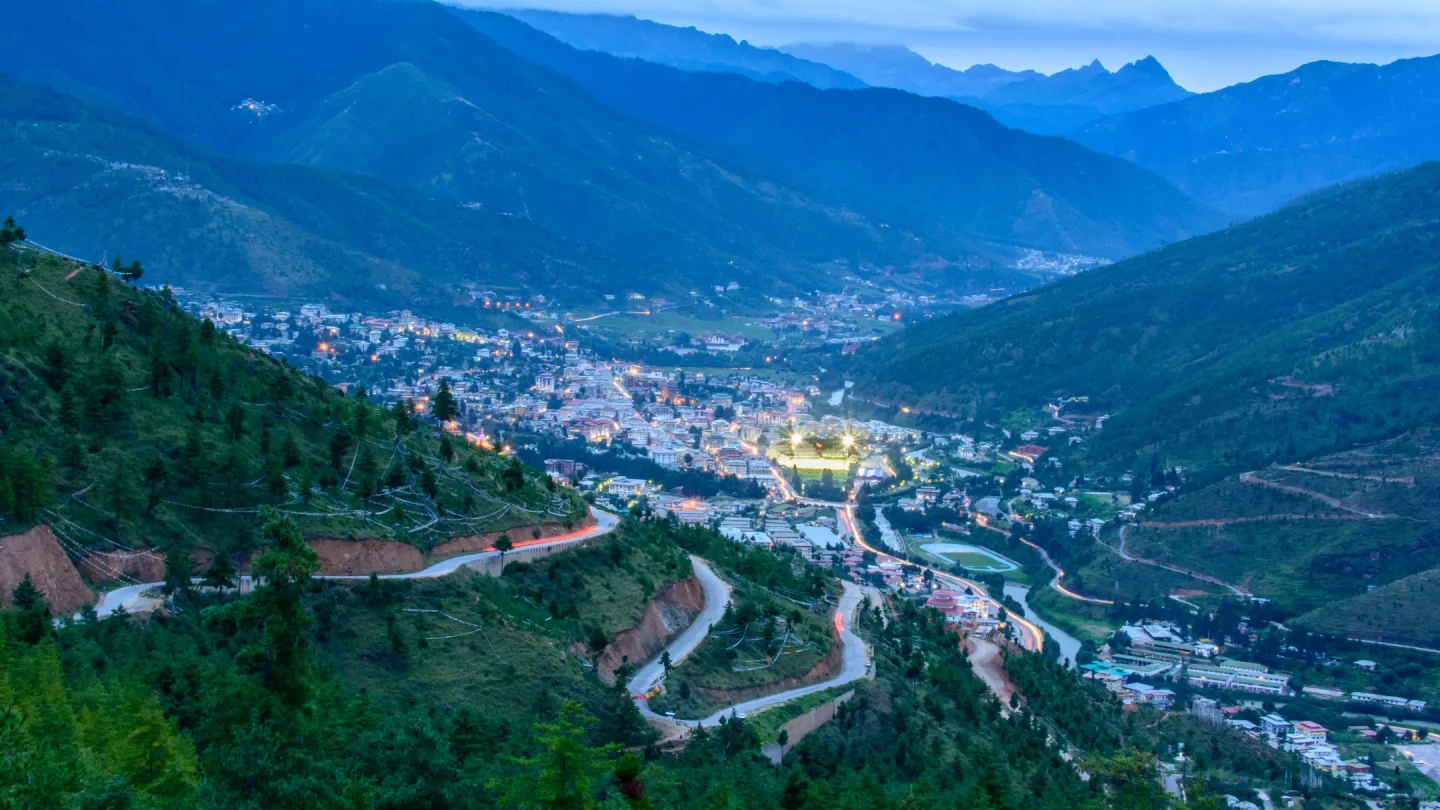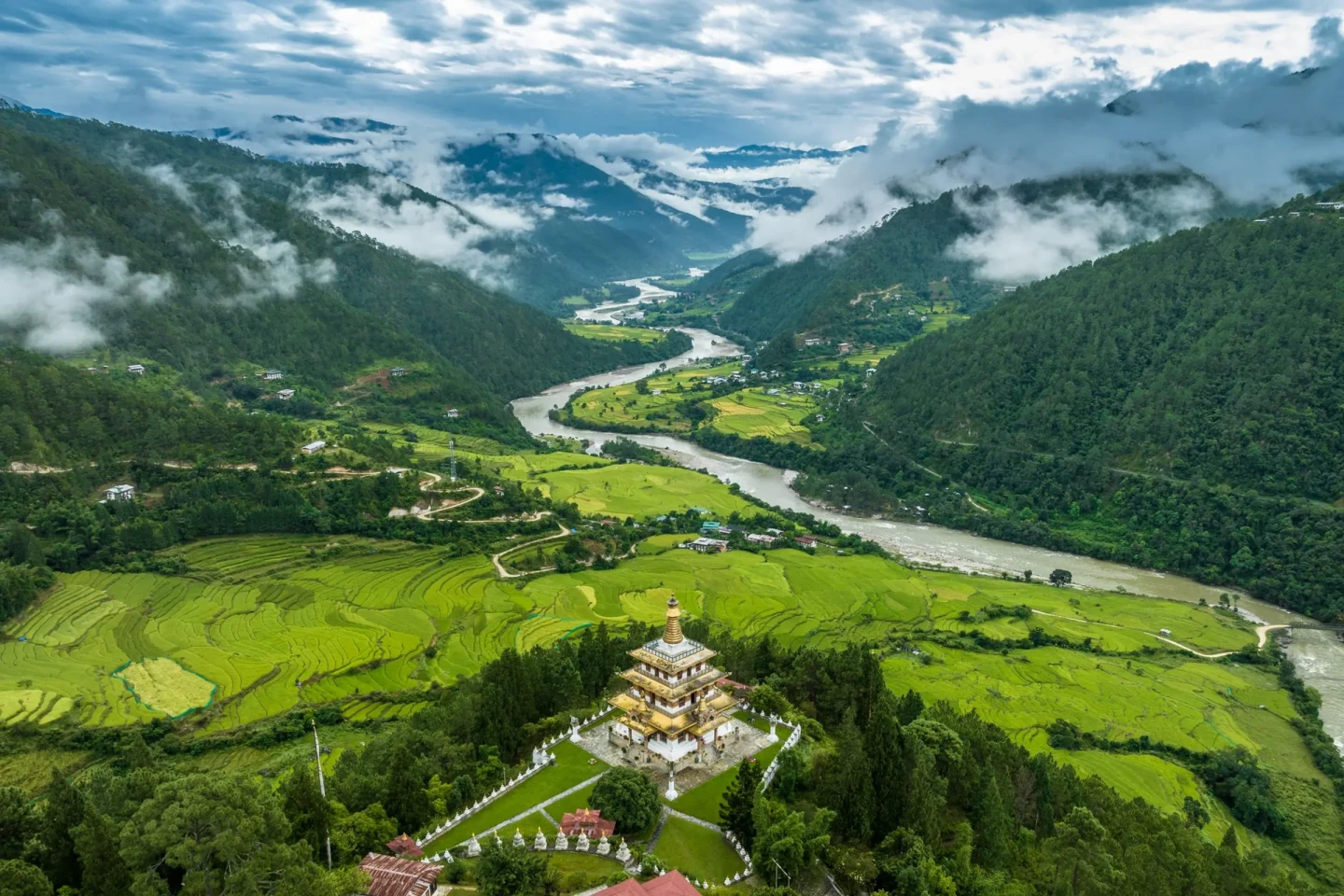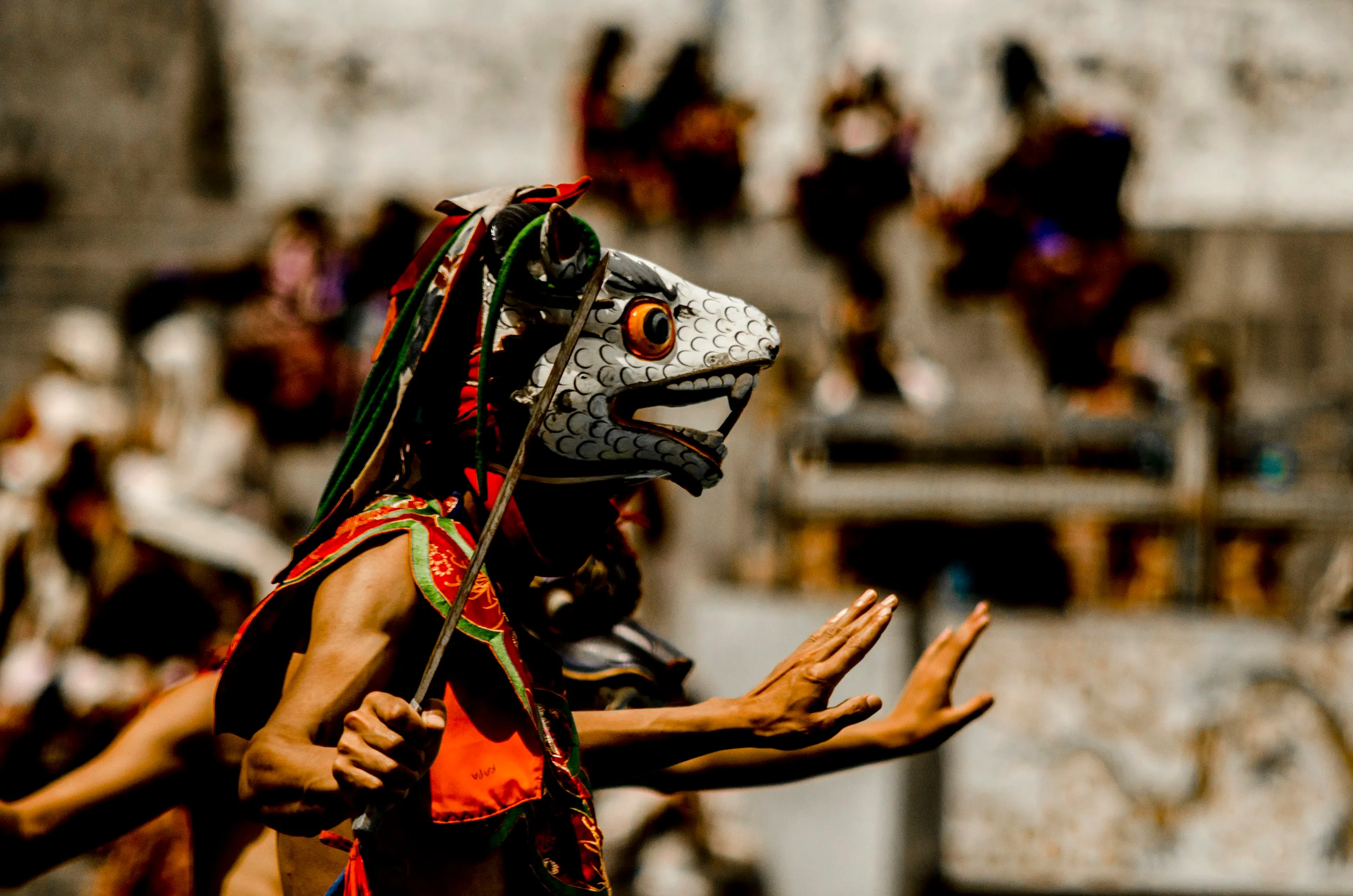Bhutan, nestled in the eastern Himalayas, offers a profoundly unique travel experience that blends breathtaking natural landscapes with a deeply spiritual culture, making it an ideal destination for Ivorian travelers seeking authenticity far removed from the bustling urban life of Abidjan or Yamoussoukro. This landlocked kingdom, often called the "Land of the Thunder Dragon," emphasizes sustainable living and cultural preservation, providing a stark contrast to the vibrant, coastal vibrancy of Côte d'Ivoire. While both nations share a commitment to their rich cultural heritages—Bhutan through its Buddhist traditions and Côte d'Ivoire via its diverse ethnic tapestry of over 60 groups—they differ significantly in geography and development paths; Bhutan's rugged mountains and forests stand in opposition to Côte d'Ivoire's tropical plains and Atlantic coastline, yet both countries prioritize community well-being over rapid industrialization. Diplomatic relations between Bhutan and Côte d'Ivoire, though not extensively developed, are cordial within the framework of international organizations like the United Nations, where they collaborate on issues such as sustainable development and climate change, reflecting shared concerns as developing nations vulnerable to global shifts. For Ivorians unfamiliar with Himalayan environments, Bhutan promises a realistic adventure marked by serene monasteries, pristine rivers, and warm hospitality, but it requires an open mind to embrace its slower rhythms and limited modern amenities. This guide, crafted as if by an experienced Bhutanese travel consultant, aims to equip you with comprehensive insights to ensure a respectful, enriching journey that honors both your Ivorian roots and Bhutan's timeless ethos.
Visa and Entry Requirements
Bhutan's tourism is meticulously controlled to preserve its environment and culture, mandating that all foreign visitors, including those from Côte d'Ivoire, book their trips exclusively through licensed Bhutanese tour operators. This policy ensures that tourism remains high-value and low-impact, aligning with the kingdom's philosophy of sustainability. For Ivorian tourists, the visa process begins once you've selected and paid a deposit to your chosen tour operator, who will then handle the application on your behalf by submitting it to the Tourism Council of Bhutan. Required documents typically include a scanned copy of your passport, valid for at least six months from your arrival date, along with a recent passport-sized photo; no additional paperwork like invitation letters or financial proofs is usually needed beyond what the operator requests. The visa approval letter is issued electronically within a few days to a week, and upon arrival at Paro International Airport, you'll receive the actual visa stamp in your passport after presenting this letter and paying any remaining fees. Crucially, the visa is tied to the payment of the Sustainable Development Fee (SDF), which stands at USD 100 per person per night for adults as of 2025, with children aged 6 to 12 paying half and those under 6 exempt; this fee funds essential services like free healthcare and education for Bhutanese citizens, directly contributing to the nation's welfare. The SDF significantly influences overall trip pricing, as it's incorporated into the minimum daily package rate set by the government, covering accommodations, meals, transport, and guides—expect total costs to start around USD 250-300 per day per person, depending on group size and season, making advance budgeting essential for Ivorian travelers accustomed to more flexible African travel arrangements.
Travel Routes from Côte d'Ivoire to Bhutan
Traveling from Côte d'Ivoire to Bhutan involves multiple legs due to the absence of direct flights, requiring transits through major international hubs, but with careful planning, the journey can be smooth and exciting for Ivorian adventurers eager to bridge West Africa and the Himalayas. From Abidjan's Félix-Houphouët-Boigny International Airport (ABJ), the most common routes involve flying to European or Asian gateways before connecting to Paro International Airport (PBH), Bhutan's sole international entry point. For instance, you might take an Air France flight from Abidjan to Paris Charles de Gaulle (CDG), then transfer to a flight to New Delhi's Indira Gandhi International Airport (DEL), and finally board a Drukair or Bhutan Airlines service to Paro; alternative paths could include Ethiopian Airlines via Addis Ababa to Bangkok (BKK) or Kathmandu (KTM), followed by a connection on one of Bhutan's national carriers. Drukair and Bhutan Airlines are the only airlines permitted to operate into Paro, known for its challenging approach amid towering peaks, which limits flights to daylight hours and skilled pilots. Weather plays a pivotal role, as Himalayan conditions can cause delays or diversions—monsoon rains or fog might ground planes for hours or days, so building buffer time into your itinerary is advisable. Booking should be done well in advance through your tour operator, who can coordinate seamless connections; expect total travel times of 20-30 hours, with layovers offering opportunities to rest. Realistic expectations include potential jet lag from the time difference (Bhutan is 6 hours ahead of Côte d'Ivoire) and the need for flexibility, but the stunning aerial views upon descending into Paro make the effort worthwhile for those departing from Yamoussoukro or other Ivorian cities via Abidjan.
Best Time to Visit and Seasonality
Bhutan's diverse climate, shaped by its Himalayan topography, divides the year into distinct seasons that profoundly influence travel experiences, from weather patterns to cultural events, requiring Ivorian visitors to plan meticulously for optimal enjoyment. Spring, spanning March to May, brings mild temperatures averaging 10-20°C in valleys, with blooming rhododendrons and clear skies ideal for trekking and sightseeing, though occasional showers may occur; this period coincides with festivals like Paro Tshechu in April, featuring vibrant mask dances that offer deep insights into Bhutanese spirituality. Summer, from June to August, ushers in the monsoon with heavy rains up to 500mm monthly, leading to lush greenery but slippery roads and leech-infested trails, making it less favorable for outdoor activities yet perfect for those seeking solitude and lower crowds. Autumn, September to November, is widely regarded as the prime season, with crisp air (5-15°C), minimal rainfall, and panoramic mountain views, aligning with major events such as Thimphu Tshechu in October, where locals in traditional attire celebrate with communal fervor. Winter, December to February, delivers cold snaps down to -5°C in higher altitudes, with possible snow in the north, suiting hardy travelers interested in birdwatching or quieter monastery visits. For Ivorian tourists, accustomed to tropical warmth, autumn is recommended for its balanced weather, moderate tourist numbers, and festival highlights, allowing comfortable exploration without extreme heat or cold; however, spring suits those preferring floral spectacles, while avoiding peak monsoon ensures safer travel amid Bhutan's variable terrain.
Money, Costs, and Payment Methods
Bhutan's currency, the Ngultrum (BTN), is pegged one-to-one with the Indian Rupee, simplifying exchanges for international visitors, though Ivorian travelers should prepare for a cash-reliant society with limited digital options outside major towns. ATMs are available in cities like Thimphu and Paro, accepting Visa and Mastercard for withdrawals up to BTN 10,000-20,000 per transaction, but reliability diminishes in remote areas, so carrying sufficient cash in USD or BTN is prudent; exchange facilities at Paro Airport and banks in urban centers offer competitive rates for USD, Euros, or even CFA Francs if converted beforehand. Credit cards are accepted at higher-end hotels and some shops, but not universally, making cash essential for local markets or tips. Tour packages, mandatory for foreigners, typically encompass accommodations in 3-star hotels or better, all meals (breakfast, lunch, dinner), internal transportation by private vehicle, an English-speaking guide, and entrance fees, with the SDF embedded in the daily rate; extras include alcoholic beverages, souvenirs, laundry, and gratuities for guides and drivers (around USD 10-15 per day combined). For Ivorian budgets, anticipate total costs of USD 2,000-4,000 per person for a week-long trip excluding international flights, factoring in the SDF's impact; advising travelers to exchange money upon arrival and track expenses ensures financial ease in this serene kingdom.
Health, Safety, and Travel Insurance
Health considerations in Bhutan revolve around its high-altitude environments and rural infrastructure, demanding proactive measures from Ivorian travelers unaccustomed to such conditions to ensure a safe journey. Altitude sickness, or acute mountain sickness (AMS), poses a primary risk at elevations above 2,500 meters, common in places like Thimphu (2,300m) or Punakha (1,200m), with symptoms including headaches, nausea, and fatigue; prevention involves gradual ascent, hydration, and avoiding alcohol initially. Recommended vaccinations include Hepatitis A, Typhoid, Tetanus, and possibly Rabies due to stray dogs, while routine shots like MMR should be current; consult a travel clinic in Abidjan well in advance. Medical facilities are basic, with quality hospitals in Thimphu but limited elsewhere, underscoring the necessity of comprehensive travel insurance covering emergency evacuation by helicopter, which can cost tens of thousands of USD. Bhutan boasts exceptional safety with negligible crime rates, fostering a trusting atmosphere where doors are often left unlocked, yet minor risks like uneven paths, stray animals, or occasional pickpocketing in crowds warrant vigilance. For Ivorian visitors, embracing these precautions transforms potential challenges into opportunities for mindful exploration in one of the world's safest destinations.
Cultural Etiquette and Social Expectations
Bhutanese society, steeped in Buddhist principles of compassion and harmony, expects visitors to exhibit respect through modest behavior, particularly in sacred spaces, requiring subtle adjustments from Ivorian cultural norms of expressive warmth to fit local humility. In temples and monasteries, remove shoes, hats, and sunglasses before entering, dress conservatively with long pants and covered shoulders (scarves are provided if needed), and circumambulate clockwise while avoiding pointing at deities or monks; speaking softly and refraining from public displays of affection honors the serene ambiance. Socially, patience is paramount—Bhutanese interactions prioritize politeness over haste, so greeting with a slight bow and "Kuzuzangpo la" fosters goodwill, while accepting offerings like tea with both hands shows gratitude. Humility shines in conversations; boasting is frowned upon, aligning with Ivorian values of community but tempering any exuberant storytelling. For Ivorians, adapting involves toning down vibrant attire in religious sites and embracing silence during rituals, ensuring interactions enhance mutual understanding in this culturally immersive land.
Connectivity, SIM Cards, Internet Access
Connectivity in Bhutan, while improving, remains patchy outside urban areas, necessitating preparation for Ivorian travelers reliant on constant communication to stay linked with home. Wi-Fi is reliably available in most hotels and guesthouses, often free but with varying speeds suitable for emails and browsing, though streaming may falter in remote valleys; cafes in Thimphu offer hotspots, but expect occasional outages due to power issues. For mobile data, purchasing a local SIM card upon arrival is straightforward—options include B-Mobile (Bhutan Telecom) and TashiCell, both providing tourist packages with data, calls, and texts starting at BTN 300-500 for 7-10 days, available at airport counters or authorized shops with your passport. Coverage is strong in towns and along highways, extending to 4G in many areas, but drops in high mountains; TashiCell often edges out in rural reach. Ivorian apps like mobile banking may function normally, but VPNs are useful for accessing restricted content or enhancing privacy on public networks. This setup allows seamless sharing of your Bhutanese adventures while respecting the kingdom's focus on present-moment living.
Language and Communication
Language barriers in Bhutan are minimal within the tourism sector, where English is widely spoken by guides, hotel staff, and educated locals, facilitating smooth interactions for Ivorian travelers whose primary languages include French and indigenous tongues like Baoulé or Dioula. Dzongkha serves as the official language, but tourism relies heavily on English, with multilingual guides available in French upon advance request through your tour operator, though not as common as Hindi or Chinese options. For those with limited English, simple gestures, translation apps, or pictorial aids prove effective, while learning basic Dzongkha phrases like "Thank you" (Kadinche la) builds rapport. In rural areas, communication may involve more nonverbal cues, aligning with Bhutanese emphasis on kindness over verbosity, allowing Ivorian visitors to navigate with patience and smiles, turning potential challenges into cultural bridges.
Packing and Preparation Advice
Packing for Bhutan demands versatility to handle its fluctuating Himalayan climates, from warm valleys to chilly peaks, advising Ivorian travelers to prioritize layers and practicality over excess. Essential clothing includes breathable long-sleeved shirts, pants, and a lightweight jacket for modest temple visits, plus thermal underlayers, fleece, and a down jacket for evenings or higher altitudes where temperatures can dip below 0°C; waterproof rain gear and sturdy hiking boots with good grip are crucial for monsoon trails or uneven paths, while comfortable walking shoes suit daily explorations. Personal items should encompass sunscreen (high SPF for intense sun), insect repellent, lip balm, and a reusable water bottle for hydration; medications like pain relievers, anti-diarrhea pills, altitude sickness remedies (e.g., Diamox if prescribed), and personal prescriptions are vital, given limited pharmacies. Power adapters for Type D/F/G sockets (round pins, 230V), a universal plug, flashlight for outages, and portable charger ensure device functionality. Other considerations include biodegradable toiletries, quick-dry towel, snacks for dietary preferences, and a daypack for excursions—pack light, as tours involve vehicle travel, allowing Ivorian explorers to focus on immersion rather than luggage burdens.
Bhutan’s Unique Tourism Philosophy
Bhutan's tourism philosophy is intrinsically linked to Gross National Happiness (GNH), a holistic metric prioritizing citizens' well-being over economic growth, shaping policies that favor quality visitors over mass influxes to safeguard cultural and environmental integrity. Introduced by the fourth King in the 1970s, GNH encompasses psychological wellness, health, education, and ecological diversity, influencing tourism by requiring guided tours and the SDF to limit numbers and fund conservation. This cautious approach stems from Bhutan's desire to avoid the pitfalls of unchecked development seen elsewhere, preserving traditions like archery festivals and monastic life amid modernization pressures. For Ivorian travelers, understanding GNH reveals why Bhutan restricts infrastructure expansion and promotes mindful tourism, encouraging appreciation of its unspoiled essence as a deliberate choice for sustainable harmony.
Mindset and Expectations for Visitors
Adjusting expectations is key for Ivorian visitors to Bhutan, where the slower pace of life and emphasis on spirituality contrast with Côte d'Ivoire's dynamic markets and social vibrancy, fostering a mindset of presence over convenience. Life unfolds deliberately here, with meals served unhurriedly and schedules flexible to weather or festivals, teaching patience as a virtue amid limited infrastructure like winding roads and small, family-run hotels offering comfort but not opulent luxury. Absent are high-end shopping malls, pulsating nightlife, or fast-paced entertainment; instead, fulfillment comes from nature hikes, cultural interactions, and meditative monastery visits. Embracing this shift allows travelers to find joy in simplicity, viewing Bhutan's understated charm as a refreshing antidote to material pursuits.
Food and Dining Culture
Bhutanese cuisine, characterized by its bold spiciness, cheese-centric dishes, and simplicity, reflects the kingdom's agrarian roots and communal hospitality, offering Ivorian palates a novel blend of flavors through staples like red rice and chilies. Iconic ema datshi—chilies stewed in cheese sauce—epitomizes the diet, often paired with buckwheat noodles (bumthang puta) or meat stews like pork phaksha paa, emphasizing fresh, local ingredients with minimal processing. Dining is a social affair, with meals shared family-style, accompanied by butter tea (suja) or ara (rice wine), underscoring warmth and generosity; vegetarians find ample options in datshi variations, though spice levels may surprise those from milder Ivorian cuisines. Alcohol, including local beers, is enjoyed moderately, enhancing the role of food in fostering connections during homestays or festivals.
Festivals, Religion, and Sacred Places
Religion permeates Bhutanese life through Vajrayana Buddhism, manifesting in festivals and sacred sites that provide profound cultural immersion for Ivorian visitors. Tshechus, annual mask dance festivals honoring Guru Rinpoche, feature elaborate performances in dzongs, blending spirituality with community joy; attendees must dress modestly, sit quietly, and avoid eating during rituals to respect sanctity. Sacred places like Taktsang Monastery demand similar etiquette—clockwise navigation, no photography inside chapels—enhancing understanding of Bhutan's devotional ethos, where these experiences cultivate inner peace and cultural empathy.
Hidden Challenges and Practical Inconveniences
Travel in Bhutan includes subtle challenges like winding roads prone to landslides, occasional power outages in rural areas, and flexible itineraries due to weather, yet these are framed as integral to the kingdom's authentic charm rather than flaws. Slow service in eateries reflects mindful preparation, while unexpected changes encourage adaptability, rewarding patience with serendipitous discoveries. Embracing these as part of Bhutan's unpolished allure allows Ivorian travelers to appreciate the journey's depth.
Shopping and Souvenirs
Shopping in Bhutan focuses on artisanal crafts like handwoven textiles (kira and gho fabrics), wooden masks, incense, and jewelry, available in Thimphu's weekend market or Paro's shops, devoid of malls or duty-free extravagance. Bargaining is minimal, especially in fixed-price stores, emphasizing fair trade; seek authenticity through government emporiums to support local weavers, turning purchases into meaningful mementos of Bhutanese craftsmanship.
Altitude Awareness and Physical Preparedness
Altitude in Bhutan varies, affecting individuals differently with symptoms like breathlessness or insomnia, necessitating precautions such as acclimatizing over days, staying hydrated (3-4 liters daily), and ascending gradually. Physical preparedness involves light exercise pre-trip, avoiding overexertion, and consulting doctors for medications, ensuring safe enjoyment of treks and sites.
Security, Safety, and Emergency Information
Bhutan's exemplary safety, with low crime and welcoming locals, reassures Ivorian travelers, though respecting laws like tobacco bans and environmental rules is essential. Emergency contacts include police at 113, ambulance at 112; for consular aid, contact Côte d'Ivoire's embassy in New Delhi, as none exists in Bhutan, facilitating prompt assistance.
Photography and Drones
Photography in Bhutan is encouraged in public spaces but restricted inside religious sites to preserve sanctity, requiring permission when capturing locals and avoiding drones, which are prohibited for tourists near sensitive areas like monasteries or airports to maintain privacy and security.
What Bhutan Does Not Have
Bhutan eschews skyscrapers, fast-food chains, casinos, and sprawling shopping centers, preserving its tranquil landscape and cultural purity, which enhances its appeal as a haven for reflective travel over commercial
indulgence.
Important Questions to Ask Before Booking a Tour
Before confirming your Bhutan tour, inquire about the guide's qualifications and language skills—will they speak French if needed, and what's their experience with cultural explanations to bridge Ivorian perspectives? Discuss itinerary flexibility: can adjustments be made for personal interests like extended festival time or lighter trekking, and how are weather disruptions handled? Probe accommodations: what standards are provided, from room amenities to locations, ensuring they suit your comfort levels? On food, ask about dietary accommodations for Ivorian preferences, including spice levels or vegetarian options, and if meals include local homestays for immersion. For emergencies, clarify protocols: what's the insurance coverage, medical access, and evacuation plans? Regarding connectivity, confirm if SIM cards are arranged and Wi-Fi reliability in lodgings. Tipping customs should be detailed: expected amounts for guides and drivers to budget accordingly. Finally, verify visa handling, cancellation policies, and client reviews to ensure a tailored, secure experience.
Conclusion
In reflection, Bhutan stands as a rare sanctuary for Ivorian travelers yearning for cultural profundity, unspoiled nature, and spiritual serenity, diverging from fast-paced or commodified vacations to offer transformative encounters that resonate long after departure.




